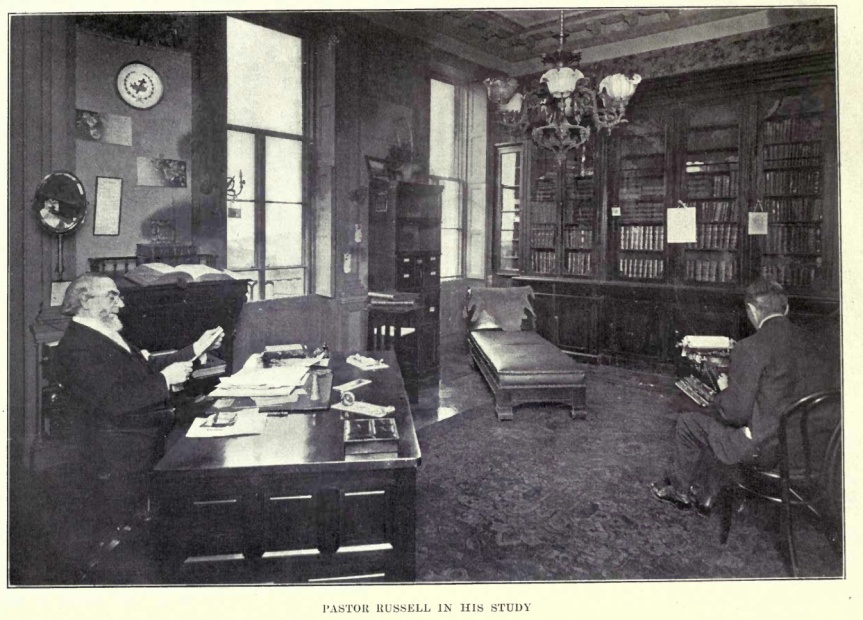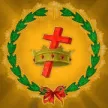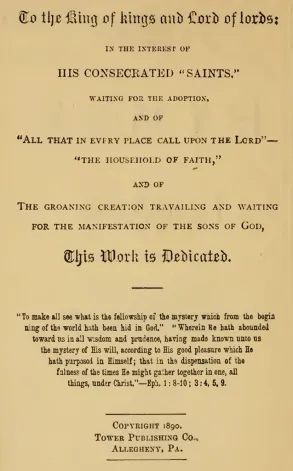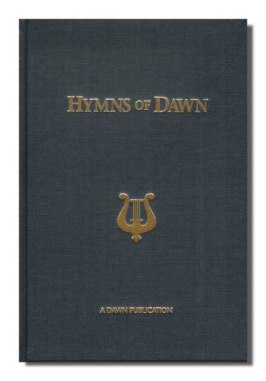Remember Me – Hymns of Dawn No. 2
Lyrics
1.
According to thy gracious word,
In meek humility,
This will I do, my dying Lord,
I will remember thee.
2.
Thy body, broken for my sake,
My bread from heav’n shall be;
Thy testamental cup I take
And thus remember thee.
3.
When to the cross I turn mine eyes
And rest on Calvary,
O Lamb of God, my Sacrifice,
I must remember thee.
4.
Remember thee and all thy pains
And all thy love to me;
Yea, while a breath, a pulse remains,
I will remember thee.
5.
Then of thy grace I’ll know the sum,
And in thy likeness be,
When thou hast in thy kingdom come
And dost remember me.
Author
James Montgomery (1771-1854)

James Montgomery was the oldest son of John Montgomery, an Irish minister of the Moravian Church, and was born in Irvine, Ayrshire, Scotland, on November 4, 1771. At the age of seven he was sent to school at Fulneck in Yorkshire to prepare for the ministry.
It was during his years at Fulneck that his parents were sent to the West Indies as missionaries. Both of his parents died there. He left Fulneck in 1787 and received work as a merchant in Mirfield. Despite his great dislike for the work, Montgomery worked in Mirfield for a year and a half. Then he took a similar position at Wath only to find it quite as unsuited to his taste as the former. He finally set out for London with a copy of his poems in the hope of finding a publisher for them. In this he failed. He did, however, get in touch with Mr. Robert Gales of Sheffield, the owner and editor of the Radical Sheffield Register. Since Montgomery soon shared the views of Mr. Gales, he became co-editor.
When Mr. Gales was forced to leave England to avoid prosecution, in 1794, Montgomery took over the paper and became its owner and editor. Montgomery changed the name of the paper to the Sheffield Iris. During the first two years of his editorship Montgomery was imprisoned twice in the Castle of York and fined, once for three months for commemorating the fall of the Bastille and again for six months for reporting a riot in Sheffield. But Montgomery did not remain a strict radical all his life. At the age of forty-three he returned to the Moravian congregation at Fulneck and became an active member.
He was a zealous worker for missions and was an active member of the Bible Society. Montgomery was also a bitter opponent of slavery. He could not forget that his parents had given their lives as missionaries to the wretched blacks of the West Indies. His father’s grave was at Barbados, and his mother was sleeping on the island of Tobago.
Besides contributing poetry and hymns to the world for a period of fifty years, Montgomery lectured on poetry and literature. In 1833 he received a royal pension of $1,000.00 per year. James Montgomery never married. He reached the ripe old age of 83. He died at Sheffield, April 30, 1854, and was honored with a public burial.
He wrote 400 hymns, of which 100 are still in common use. A perusal of almost any English evangelical hymn-book will probably reveal more hymns by this gifted and consecrated man than by any other author, excepting only Isaac Watts and Charles Wesley. Among his longer poems are The West Indies, a poem in honor of the abolition of the African slave trade by the British Legislature in 1807; The World before the Flood, 1813; The Pelican Island, 1828.
Composer
Henry W Greaorex (1816 – 1858)
Henry W Greaorex was an English-American musician. He was born in Burton upon Trent, England. He received a thorough musical education from his father, Thomas Greatorex, who was for many years organist of Westminster Abbey, and conductor of the London “concerts of ancient music.” He came to the United States in 1839. In 1849, he married the artist Eliza Pratt. Prior to settling in New York City as a teacher of music and organist at Calvary Church, he played at churches in Hartford, Connecticut, including Center Church and St. John’s Episcopal Church in the adjacent city of West Hartford, Connecticut. Greatorex frequently sang in concerts and oratorios. For some years he was organist and conductor of the choir at St. Paul’s chapel. He died in Charleston, South Carolina, aged 42 years.
Greatorex published a Collection of Psalm and Hymn Tunes, Chants, Anthems, and Sentences (Boston, 1851). One of Greatorex’s best-known compositions is a setting of the Gloria Patri, widely used in Protestant denominations for the singing of the doxology in services to this day. The words of “Gloria Patri” are:
Glory to the Father, and to the Son, and to the Holy Spirit,
Both now and always, and unto the ages of ages. Amen.
The Bible Students’ fellowship does not agree with the false teaching of the Trinity—introduced by the anti-Christ Roman Catholic Church system—that is reflected as the “Beast” in the Book of Revelation. This false teaching that God, Jesus and the holy Spirit are one and the same personification, is not what the Bible teaches. Here is what the Bible teaches about the Heavenly Father—Jehovah, his Son—Christ Jesus and the holy Spirit—the understanding of God—:
The Doctrine of the Trinity – Mystery or Confusion by Bro. David Rice.
http://www.heraldmag.org/1999/99nd_3.htm
The Origin of the Trinity – From Paganism To Constantine by Sr. Cher-El L. Hagensick.
http://www.heraldmag.org/olb/Contents/doctrine/The%20Origin%20of%20the%20Trinity.htm
Facts About the Trinity
http://www.heraldmag.org/olb/contents/doctrine/FACTS%20ABOUT%20THE%20TRINITY.htm
God and the Trinities
http://www.heraldmag.org/literature/doc_42.htm
Development of the “Trinity Doctrine” by Bro. Tom Gilbert.
Understanding John 1:1 by Bro. Richard Doctor.
Father, Son and Holy Spirit
https://biblestudentsdaily.com/2016/06/23/father-son-and-holy-spirit/
What Is the Heavenly Father’s Name
https://biblestudentsdaily.com/2017/06/27/gods-name-what-is-the-heavenly-fathers-name-that-we-are-to-hallow-and-why/
Jesus – The Name
https://biblestudentsdaily.com/2017/07/05/jesus-the-name/
The Doctrine of Christ – Booklet
Click to access DoctrineChrist.pdf
Hymn Book Purchase
The Hymns Of Dawn (hymn book) can be purchased here:
The Dawn Bible Students Association: http://www.dawnbible.com/dawnpub.htm
The Chicago Bible Students Online Bookstore: https://chicagobible.org/product-category/books/page/4/
Reference
The above content about this hymn’s author, comes from an article based on the public domain material from the Evangelical Lutheran Hymnary Handbook and is licensed under the GNU Free Documentation License.
Wikipedia was used to access the above information about the Composer, Henry W Greaorex.
Acknowledgment
- Br. Charles Taze Russell

Br. Charles Russell—the founder of the Bible Students movement, who is the compiler of “Poems and Hymns of Millennial Dawn” which was published in Allegheny, Pa., in 1890. This Bible Students’ devotional originally contained a total of 151 poems and 333 hymns.
Later on, the hymns from this book formed a basis for the hymnal titled ““Hymns of Dawn” which was published by the Dawn Bible Students Association in East Rutherford, New Jersey (USA) and the 1999 edition contains a total of 361 hymns.
- The authors of the non-denominational articles listed above.
The URL of this post: biblestudentsdaily.com/2017/09/09/remember-me-hymns-of-dawn-no-2/




